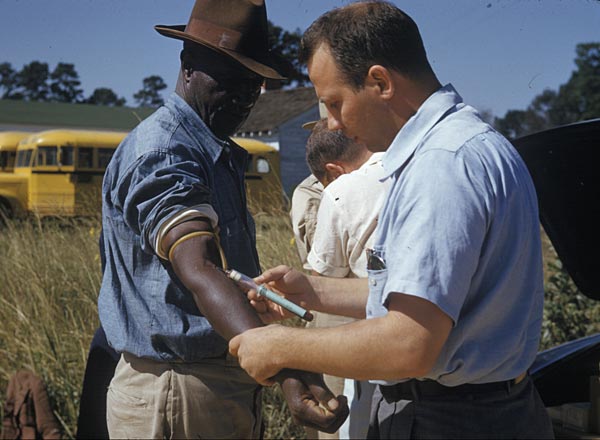The US once withheld syphilis treatment from hundreds of Black men in the name of science. Newly public records are helping us understand how it could happen
By Caitjan Gainty,
The Conversation
| 01. 12. 2024
In 1972, a whistleblower revealed that the United States Public Health Service (USPHS) had withheld syphilis treatment from hundreds of Black men as part of a 40-year study observing the natural course of the disease. The experiment’s subjects – the majority of whom were sharecroppers from rural Alabama – believed they were undergoing treatment for “bad blood”, a colloquial name then used for a host of conditions, including venereal diseases. Instead, they received placebos and inadequate medical care, even after penicillin emerged as an effective, readily available treatment for syphilis in the mid-1940s.
The Tuskegee syphilis study, as the experiment is often called today, began in 1932 with the recruitment of 600 Black men, 399 with syphilis and 201 without, to serve as the control group. Initially intended to run for six months, the study continued for decades. Unwitting participants lured in by the promise of free medical care, hot meals and burial insurance returned regularly for aspirin, tonics, blood draws and the occasional spinal tap. But none of these treatments do any good for syphilis, and 128 of...
Related Articles
By Anumita Kaur [cites CGS’ Katie Hasson], The Washington Post | 03.25.2025
Genetic information company 23andMe has said that it is headed to bankruptcy court, raising questions for what happens to the DNA shared by millions of people with the company via saliva test kits.
Sunday’s announcement clears the way for a new...
By Anna Louie Sussman, The New York Times | 03.25.2025
On June 24, 2022, the same day the Supreme Court issued its decision in Dobbs v. Jackson Women’s Health Organization, I received a call from the fertility clinic where I’d been undergoing in vitro fertilization, informing me that seven of...
By Loren Johnston, Portland Press Herald | 03.15.2025
By Mike Baker, The New York Times | 02.25.2025
As investigators struggled for weeks to find who might have committed the brutal stabbings of four University of Idaho students in the fall of 2022, they were focused on a key piece of evidence: DNA on a knife sheath that...




